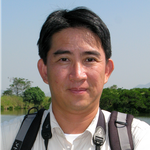- Environmental Public Policy and International Conventions
Dr. Maria Francesch-HuidobroPublic policy making is a dynamic, complex and interactive process through which public problems are identified and countered by creating new public policy or by reforming an existing public policy. Public problems can originate in many ways and require different policy responses such as regulations, subsidies, quotas and laws at the local, regional, national or international level.
When substantive scientific evidence points towards environmental damage, an International Environmental Convention may be formulated. Governments around the world gather to discuss and negotiate the terms of rules, regulations or protocols to be agreed upon to curb such damage. There are currently hundreds of such conventions. Which one are the most crucial for environmental practitioners in Hong Kong? How do they affect environmental management practices?
Dr. Maria will address the complexities involved in development and implementing environmental public policies. She will also highlight the key International Environmental Conventions relevant to Hong Kong illustrated with case studies, and discuss their impact to local businesses and government policy making.
- Fundamentals of Corporate Sustainability & Reporting
Ms. Grace KwokThe aim of this session is to provide some foundational training and development for corporate sustainability practitioners who have just entered or are considering entering the field.
• The evolution from sustainable development to corporate sustainability
• The current typical functions or components of the corporate sustainability team
• Understanding your company’s current state and position in corporate sustainability and its aspirations
• An introduction to corporate sustainability reporting, the HKEx ESG Reporting Guide and ISSB General Sustainability-related Disclosures
• An example of how to develop a reporting system and relevant processes
• The critical importance of establishing robust governance
• Q&A
- Environmental Impact, Site Assessment and Risk Assessment
Mr. Freeman CheungEnvironmental assessment is the assessment of the positive and negative environmental consequences of a plan, policy, programme, or project to ensure that decision makers consider the environmental impacts when deciding whether or not to proceed with a project.
Mr. Freeman Cheung will share with us the fundamentals of the environmental impact assessment, site assessment and risk assessment processes.
- Environmental Pollution, Industrial Ecology and Product Stewardship
Ms. Sarah MakProduct stewardship is a product-centered approach to reduce the impact on the environment. During the lifecycle of a product, from design conception to end-of-life disposal, environmental pollution occurs at every step.
- What can the parties involved (including designers, manufacturers, retailers, government, and users) do to minimize these impacts?
- In addition to reduce-reuse-recycle, what should be done to prevent pollution?
- How can a change in the design of a product help combat climate change?
Ms. Sarah Mak will lead us through an exploration to these questions and discuss the mindset change required.
- Ecology and Biodiversity
Dr. Billy HauThis two-hour workshop is aimed at environmental professionals who are not ecologists.
The session will cover some basic concepts and theories of ecology and biodiversity, human impacts on biodiversity, and international conventions on conservation under the Environmental Science, Management and Policy section of the HKIQEP Professional Assessment Syllabus.




